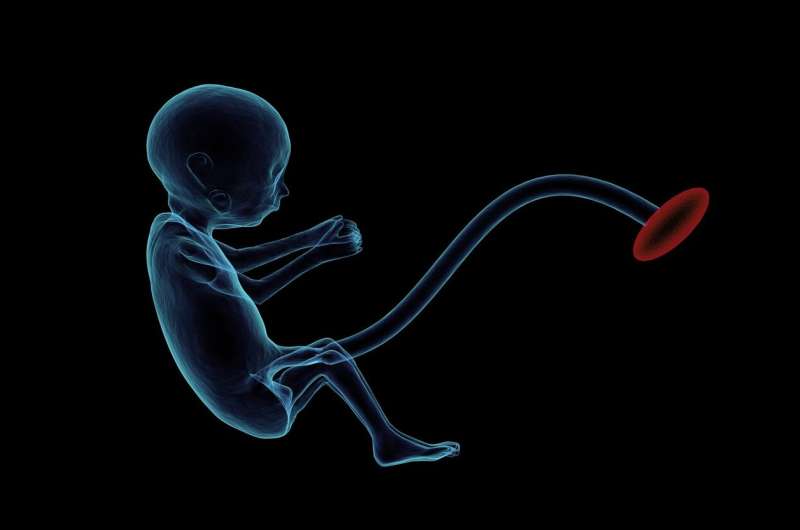This article has been reviewed according to Science X's editorial process and policies. Editors have highlighted the following attributes while ensuring the content's credibility:
fact-checked
peer-reviewed publication
trusted source
proofread
Accelerated aging biology in the placenta found to contribute to a rare form of pregnancy-related heart failure

A form of heart failure that occurs during late pregnancy or early postpartum, peripartum cardiomyopathy (PPCM) is a major cause of maternal death.
New research led by investigators from Massachusetts General Hospital reveals new insights into the mechanisms behind PPCM's development and points to potential new strategies for therapeutic development. The results are published in Science Translational Medicine.
"Even though heart disease now represents the leading cause of maternal death in the US, our understanding of the biology driving many of these diseases is still very limited," said co-lead author Jason Roh, MD, MHS, a cardiologist who runs a cardiovascular aging laboratory in the Massachusetts General Hospital Cardiovascular Research Center. "Our study identifies some underlying aging-related biology that contributes to the development of maternal heart failure in pregnancy and provides evidence from both patients and animal models."
Roh and his colleagues work began with an unexpected finding. While studying the role of senescent (or aged) cells in older adults with heart failure, they were surprised to find that proteins secreted by these aged cells were being detected at even higher levels in the blood of young pregnant women with heart failure.
Based on these initial findings, the researchers conducted experiments to see whether these senescence proteins might be contributing to the development of PPCM as well as preeclampsia, a hypertensive disorder of pregnancy that is a leading risk factor for PPCM and postpartum heart failure.
Their reasoning was based on prior work showing that the placenta, a hybrid maternal-fetal organ unique to pregnancy, manifests markers of increased senescence towards the end of pregnancy.
When the team assessed placentas from women with preeclampsia, they found that they displayed multiple markers of amplified senescence and tissue aging, as well as increased expression of many of the senescence proteins that were detected in the blood of women with preeclampsia or PPCM.
The most highly expressed cellular senescence protein in these placentas was activin A, and higher levels of this protein were linked to either more severe heart dysfunction or heart failure in women with preeclampsia or PPCM.
"While the placenta undergoes a normal physiological process of aging (or senescence) throughout pregnancy, this seems to be further amplified in those who develop heart failure during pregnancy," said Roh. "We believe this causes it to secrete various factors into the mom's blood that can negatively impact the function of the heart."
In experiments conducted in mice, the placentas of mice with PPCM showed similarly increased expression of cellular senescence-associated proteins. Treating these mice with fisetin—a drug that can selectively clear highly senescent cells—during mid- to late pregnancy partially reduced placental senescence and improved heart function. Treatment with an antibody directed against the receptor for activin A, after pregnancy, had similar effects in these animals.
"Although we are still in the very early stages of understanding how amplified placental senescence can affect the function of the mom's heart, we believe our findings answer some fundamental questions about the biology underlying heart failure in pregnancy," said Roh. "It is important to note that placental senescence is a normal part of pregnancy. Fully understanding why this process becomes perturbed in pregnancy-related heart disease and rigorously determining how to safely regulate it are critical next steps before translating these findings."
More information: Jason D. Roh et al, Placental senescence pathophysiology is shared between peripartum cardiomyopathy and preeclampsia in mouse and human, Science Translational Medicine (2024). DOI: 10.1126/scitranslmed.adi0077





















